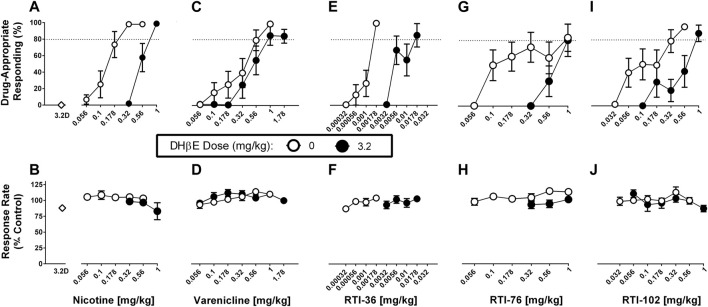FIGURE 2.
DHβE (3.2 mg/kg) antagonism of discriminative stimulus (top row) and rate-decreasing (bottom row) effects in rats trained to discriminate 0.32 mg/kg nicotine from saline. (A) DHβE produces a rightward shift of the nicotine dose response function for the nicotine (0.32 mg/kg) discriminative stimulus, and (B) response rate effects. (C) DHβE does not alter varenicline dose response function for the nicotine discriminative stimulus and (D) response rate effects. DHβE does produce a rightward shift of the (E) RTI-36, (G) RTI-76, and (I) RTI-102 dose response curve in the substitution effects of the nicotine discriminative stimulus and (F, H, J) respective rate-decreasing effects. Top panels show drug-appropriate responding on the ordinates and drug dose in mg/kg (log scale) on the abscissae. The dashed line represents the percent responding on the nicotine-paired lever required to meet full discriminative stimulus criteria. Bottom panels show response rate normalized to saline control on the ordinates as function of drug dose in mg/kg (log scale) on the abscissae. Data reflect mean ± SEM, n = 7–8 rats (one rat was lost to attrition).

